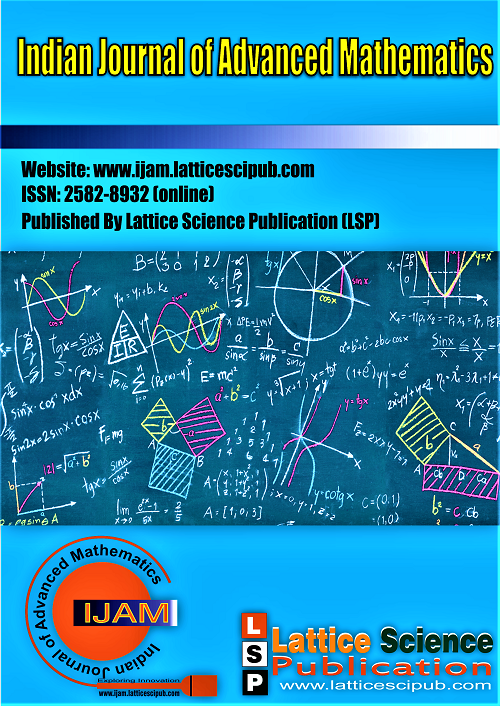An Evaluation of the Dijkstra's Algorithm, Floyd's Algorithm and Ant Colony Optimization
Main Article Content
Abstract
Travel is the movement of people between distant geographical locations. It can assist in enhancing our well-being, increasing our understanding, socializing with new individuals, relaxing and unwinding, seeking adventure, creating memories, improving mental and physical health, and immersing ourselves in different cultures. In this paper, we briefly explain the shortest path and their types applicable in practical life. The shortest path problem is a flexible and crucial instrument in different areas, facilitating effective route planning, network optimization, and resource distribution. There are many popular algorithms for solving the shortest distance path problem and its variations. We discuss how to create the most efficient route and introduce Dijkstra’s algorithm, Floyd’s algorithm, and Ant Colony Optimization to decrease the overall path expense, which could be distance, time, or another factor for the given scenario. We use two scenarios and evaluate Dijkstra’s algorithm, Floyd’s algorithm, and Ant Colony Optimization to determine the shortest route in practical situations to enhance efficiency in solving the identical issue.
Downloads
Article Details

This work is licensed under a Creative Commons Attribution-NonCommercial-NoDerivatives 4.0 International License.
How to Cite
References
Andrea Behrends, Sung-Joon Park, & Richard Rottenberg (2014). “Travelling Model: Introducing an Analytical Concept to Globalisation Studies”, (Ch. 1, pp.1-6). DOI: https://doi.org/10.1163/9789004274099_002
R. Chen, “Dijkstra’s Shortest Path Algorithm and Its Application on Bus Routing,” 2022. DOI: https://doi.org/10.2991/aebmr.k.220502.058
Jian, L. I. (2009). Optimization studies based on shortest path algorithm of dijkstra. Journal of Weinan Teachers University. https://www.semanticscholar.org/paper/Optimization-Studies-Based-on-Shortest-Path-of-Jian/b863039987bb3295f9ccc89c9d363536d15d8610
Wang, Z. H., Shi, S. S., Yu, L. C., & Chen, W. Z. (2012). An efficient constrained shortest path algorithm for traffic navigation. In Advanced Materials Research (Vol. 356, pp. 2880-2885). Trans Tech Publications. DOI: https://doi.org/10.1088/1742-6596/1087/2/022011
Tao, L., Tong, X., He, X., Xu, H., & Tan, Z. F. (2013). Location analysis of electric vehicle charging station based on the Floyd shortest path algorithm. In Applied Mechanics and Materials (Vol. 389, pp. 1014-1018). Trans Tech Publications. DOI: https://doi.org/10.4028/www.scientific.net/AMM.389.1014
Ramadiani, D.Bukhori, Azainil, & N Dengen, “Floyd Warshall Algorithm to determine the Shortest Path based on Android (2019). DOI: https://doi.org/10.1088/1755-1315/144/1/012019
T. Herianto, “Implementation of the Ant Colony System Algorithm in the Lecture Scheduling Process,” Instal : Jurnal Komputer, vol. 12, 2020. DOI: https://doi.org/10.54209/jurnalkomputer.v12i02.23
Teraiya, J., Shah, A., & Kotecha, K. (2019). ACO Based Scheduling Method for Soft RTOS with Simulation and Mathematical Proofs. In International Journal of Innovative Technology and Exploring Engineering (Vol. 8, Issue 12, pp. 4736–4740). DOI: https://doi.org/10.35940/ijitee.l3606.1081219
Aliyu, M., Murali, M., Gital, A. Y., & Boukari, S. (2019). AN Efficient Ant Colony Optimization Algorithm for Resource Provisioning in Cloud. In International Journal of Recent Technology and Engineering (IJRTE) (Vol. 8, Issue 4, pp. 421–429). DOI: https://doi.org/10.35940/ijrte.d6968.118419
Raj, A., & Poriye, M. (2020). Anomaly-Based Intrusion Detection System using Supervised Learning Algorithm Artificial Neural Network and Ant Colony Optimization with Feature Selection. In International Journal of Engineering and Advanced Technology (Vol. 9, Issue 3, pp. 2475–2481). DOI: https://doi.org/10.35940/ijeat.c5683.029320





